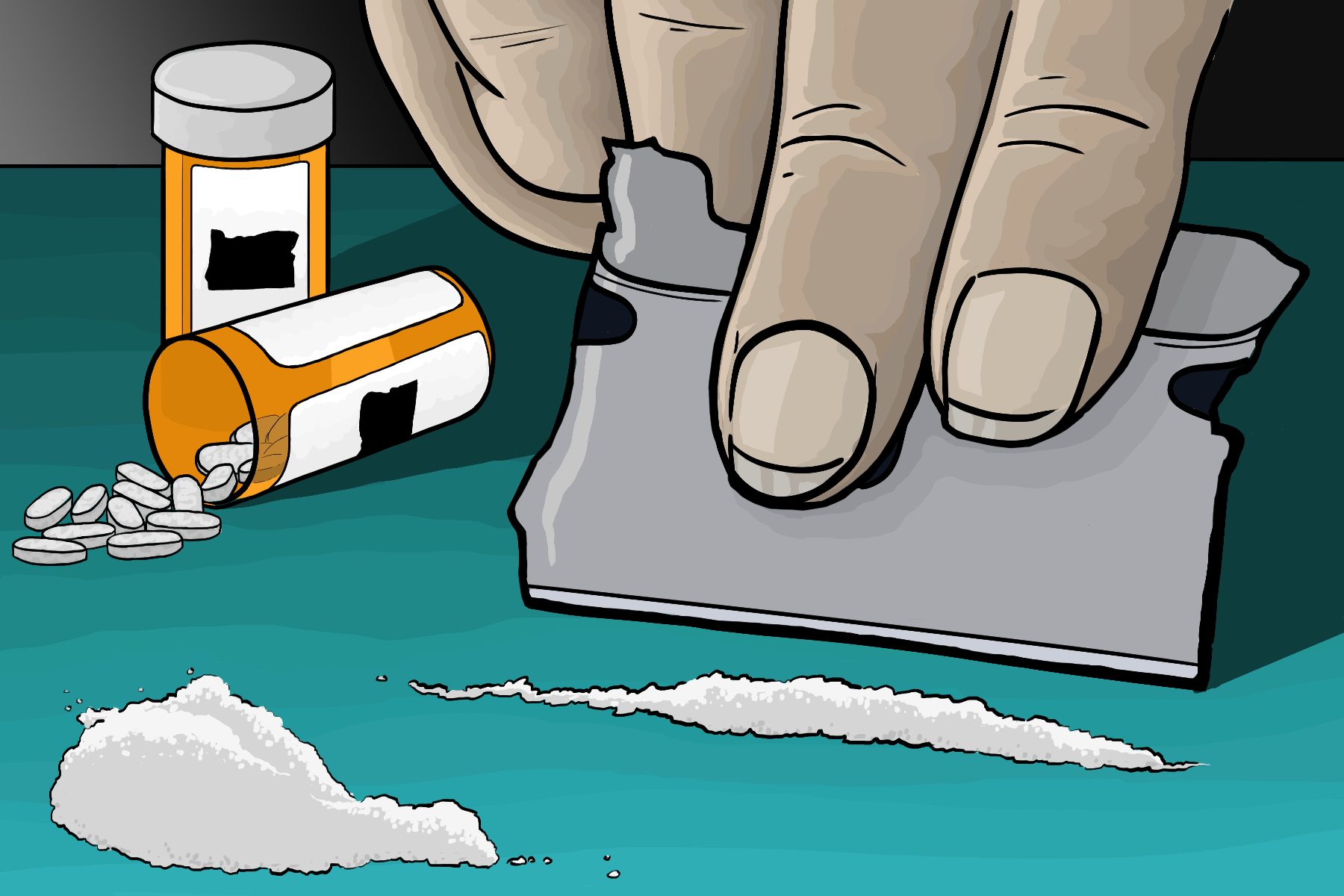Prior to 2021, there were nearly 4,000 convictions a year for criminal possession of narcotics in the state of Oregon alone. Janie Gullickson, a mother of five, was one of those people. Gullickson, a former drug and alcohol addict, came home one day and found that her ex-husband had taken their two youngest children and fled the state. This marked the beginning of her downward spiral to becoming an IV meth user. Six years later, when Gullickson was in prison, a woman came in and told her story of recovery. At this moment, Gullickson decided to turn her life around as she realized that there was a whole life on the other side of addiction and prison, but that she had to fight for it.
Now, Gullickson is the executive director of the Mental Health & Addiction Association of Oregon and hopes to help others who are on the same rough journey that she was on. Though she is criticized for her past, journalist Lindsey Schnell writes in her article, “Gullickson shares her story and all its warts because she wants others to know no matter how ugly or decimated their lives are now, something different is waiting for them.”
In a news article for KGW, Gullickson comments, “For me, I was part of that cycle of incarceration — jail, jail, jail and then prison.” She also says, “It wasn’t jail or prison that changed my life or got me into recovery. It was the treatment that was provided for me, which wasn’t offered to me until I was in prison.” Gullickson goes on to point out that if treatment was offered as the standard response for addiction, more people would seek out help instead of finding themselves in the criminal justice system.
Thankfully, “Oregon is a pioneer in liberalizing drug laws.” This means that Gullickson’s dream can finally become a reality in the state of Oregon. According to a PBS article, “Police in Oregon can no longer arrest someone for possession of small amounts of heroin, methamphetamine, LSD, oxycodone and other hard drugs.” Some are left speechless, thinking that Ballot Measure 110 was pushing for legalizing hard drugs in the state of Oregon. However, that was not the case. Ballot Measure 110 actually advocated for decriminalizing hard drugs, and instead prioritizing treatment. Some continue to criticize this movement and say that this is the gateway to full drug freedom in Oregon. However, Matt Sutton, spokesman for the Drug Policy Alliance, reassures the public that there are no plans to pursue the legalization and creation of a regulated hard drug market.
Those who are caught in possession of small amounts of hard drugs will receive a fine of $100 or a health assessment that would potentially (and most likely) lead to addiction counseling. As Gullickson had hoped, treatment will become the standard response to drug possession. This new law will mean that “about 3,700 fewer Oregonians per year will be convicted of felony or misdemeanor possession of controlled substances.” To put this into perspective, being caught in possession of hard drugs will result in a civil citation — much like a traffic ticket — rather than a criminal citation.
The idea behind this law is to encourage rehabilitation rather than punishment; years of practicing punishment have shown that punishment does not help with addiction, and it most definitely does not improve the outcomes of those who are struggling. In fact, overdoses in Oregon have increased by 70% since the beginning of the pandemic in March 2020. It is hoped that grounding policies in science rather than stigma will help pave the way for more rehabilitation from addiction.
This new drug law in the state of Oregon is compared to that of Portugal’s. In a 2018 article for Fast Company, Arianne Cohen writes, “Proponents point out that the law mimics Portugal’s wildly successful decriminalization policies, which are now 20 years old.” Under Portuguese law, drug dealers would still be arrested and taken to prison. However, any individual who was caught with less than a 10-day supply of drugs would be sent to a local commission, which consists of a doctor, lawyer and social worker. Here, they would learn about treatment options and any available medical services. The number of people in drug treatment has increased by over 60% between the years 1998 and 2001.
Some are skeptical about Portugal’s success; a few experts actually say that the success of Portugal’s approach has been overly exaggerated. Still, Bajekal writes, “While there is still a debate about the policy and how easily it could apply to other countries, it is clear that on the ground in Portugal, health care workers feel better equipped to help addicts.”
Overall laws and regulations are different in Portugal and Oregon, which makes it difficult to compare the two approaches — especially if there is a debate about whether Portugal’s approach can be applied in other countries. However, regardless of how well this law is working out in Portugal, it is still a great improvement since health care workers are better trained and prepared to handle situations involving those with addictions.
Like Janie Gullickson, many people end up stuck in the cycle of drug addiction and incarceration. People lose their jobs, their homes and ultimately their lives to their addictions. The goal of Oregon’s new drug law is to help set people back on the right track after suffering through drug problems, rather than promoting the toxic cycle that Gullickson was stuck in. Oregon’s Measure 110 is set to prioritize treatment over punishment in hopes of guiding people toward rehabilitation. Gullickson is confident that additional support and an incredible reduction of criminal stigma will change many lives that are still stuck in the same cycle that she was once trapped within.

















